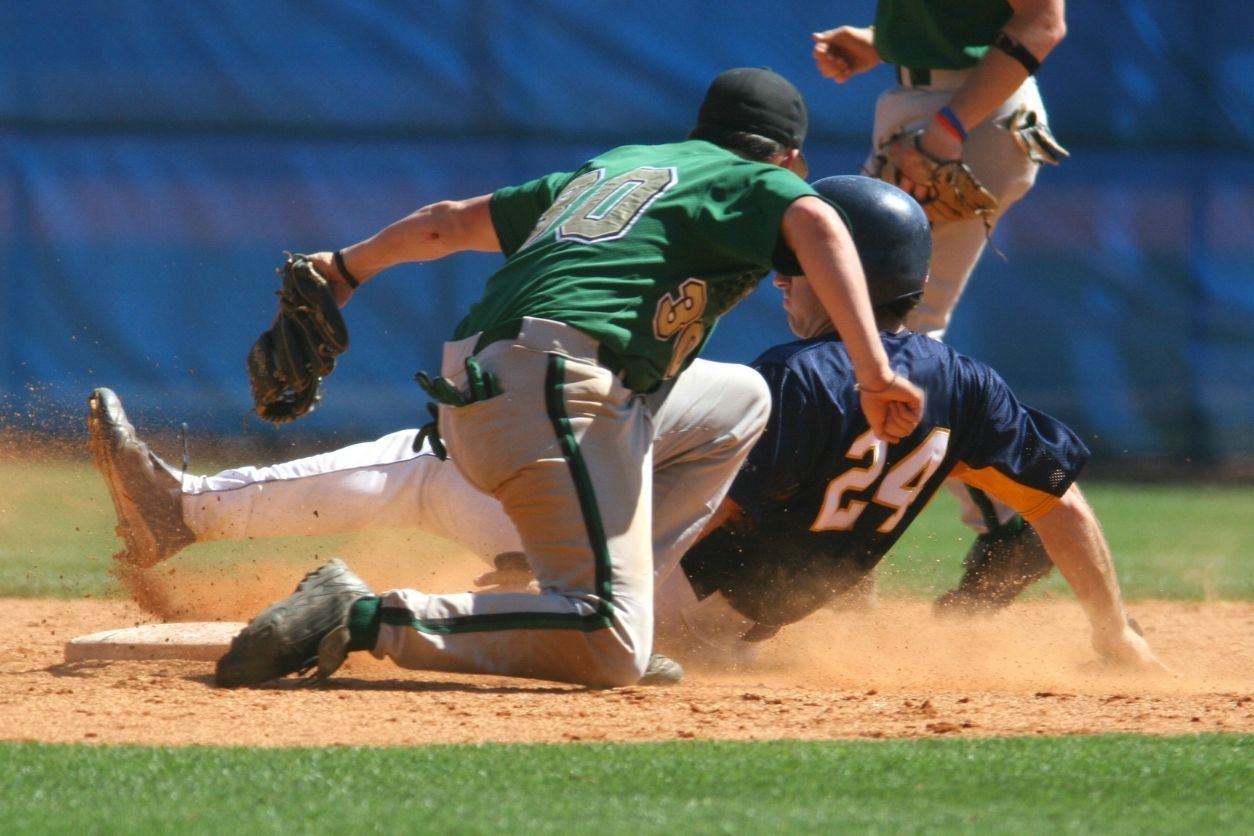Are Club Sports The Key To College Scholarships?
When it comes to being recruited to play in college, many people believe playing club sports will provide a leg up. Others feel the prominence of their school’s program will provide ample visibility for recruiting. From a coaching standpoint, there are many who believe that club sports programs are slowly killing high school athletics, while others believe they offer a vital alternative to high school teams.
So, who’s right and who’s wrong? Well, the answer is, it depends.
As part of its Growth, Opportunities, Aspirations, and Learning of Students (GOALS) studies, the NCAA surveys roughly 20,000 student-athletes every five years to glean insights on a variety of topics regarding their college experience. The most recent study shows that some sports have significantly higher participation in club sports than others. On the high end, 95% of female soccer players surveyed, and 93% of the males, played on a club team. On the opposite end of the scale, only 32% of female track athletes, and 31% of the males surveyed, participated on a club team.
In other words, the advantage of playing club sports could simply depend on the sport you play. However, there’s a lot more to consider, and if you’re making a club team or high school team decision, regardless of your sport, make sure you know the pros and cons of each.
The Club Sports Big Picture
For female athletes, the GOALS study showed that gymnastics, soccer, softball, basketball, volleyball, ice hockey, and swimming all had club sports participation at 90% or above. For males, at least 86% of the athletes in soccer, basketball, swimming, baseball, lacrosse, and ice hockey played at the club level.
So, based on those numbers, club sports offer many high school athletes a clear path to competing at the college level. That’s based on the perception that club sports are played at a more elite level while offering more specialized, sport-specific practice and training methods, and the opportunity to compete in front of more college coaches and recruiters. Many clubs also offer sparkling facilities and elite coaches, many of whom are notable former professionals. Some club programs even offer private tutoring and a travel schedule comparable to a college program.
However, while joining a club may seem like the most direct route to a college scholarship, there’s a price to be paid along the way. First consider that club sports are essentially “pay-to-play,” meaning you or your parents will be paying what may be a steep sum for the opportunity to compete at the club level, as well as the added expense of traveling. In addition to the financial investment, you’ll likely be required to put in far more time for travel, practice, and training with a club team than you would with a high school program. And, as no two club programs are the same, there’s no guarantee that the investment of time and money will result in a college scholarship for you.
The High And Lows Of High School Sports
Playing for your high school team doesn’t mean you won’t get recruited or receive scholarship offers. Plus, you’ll be playing for your high school means you’ll be competing in front of your family, friends, and community. And you’ll be competing against local or regional rivals and you’ll likely get plenty of media exposure from local TV and radio stations, as well as print and online news sources. All of those elements will help you prepare to compete at the college level.
In addition, the hierarchy of high school athletics will help you develop leadership skills as you grow from a raw freshman to a savvy senior. And that evolution into a mature team leader is something all college coaches look for.
On top of all that, in many sports, you can compete for both your high school and a club team. While soccer was cited above for its high club participation, many of those same athletes also competed for their high school team. In fact, almost all the athletes surveyed in soccer, softball, basketball, track, football, wrestling, lacrosse, volleyball, and field hockey said they competed for both their high school and club teams.
What’s The Best Choice For You
No two athletes are the same. No two high school programs are the same. And no two club sports programs are the same. That means, your decision to play club sports depends on:
- You Goals
Do you want to fully focus on one sport and pretty much immerse your life into improving and competing at that sport? If so, then a club program might be right for you. Or, if you want to compete at several sports, have a more normal high school existence, or simply a little extra free time, then competing at the high school level could be the better choice.
- Your Sport
For a variety of reasons, some sports, such as gymnastics, soccer, swimming, basketball, hockey, softball, or baseball, have more club participation than others. In some cases there’s better competition at the club level and, in others, there simply may not be a high school team to play on. For other sports, such as track, football, tennis, or golf, playing at the high school level offer plenty of opportunities to improve, grow, and compete at the highest levels.
- Can You Do Both?
For some sports, there’s no overlap in seasons, which means you can play on both high school and club teams if you want. Consider the seasons for your sport and decide if you want to make the full commitment in both time and effort to playing both high school and club levels.
Before you make your decision, check with your coach for his or her input. Ask friends or teammates who play club sports about their experiences. And don’t forget to check with your parents to ensure they can make the financial and time commitment that club sports require. And, no matter which choice you make, remember that talent and hard work will always help you get recruited, no matter where or for whom, you’re playing.
Did you enjoy this article, Are Club Sports The Key To College Scholarships? If so, check out more of our article HERE.





